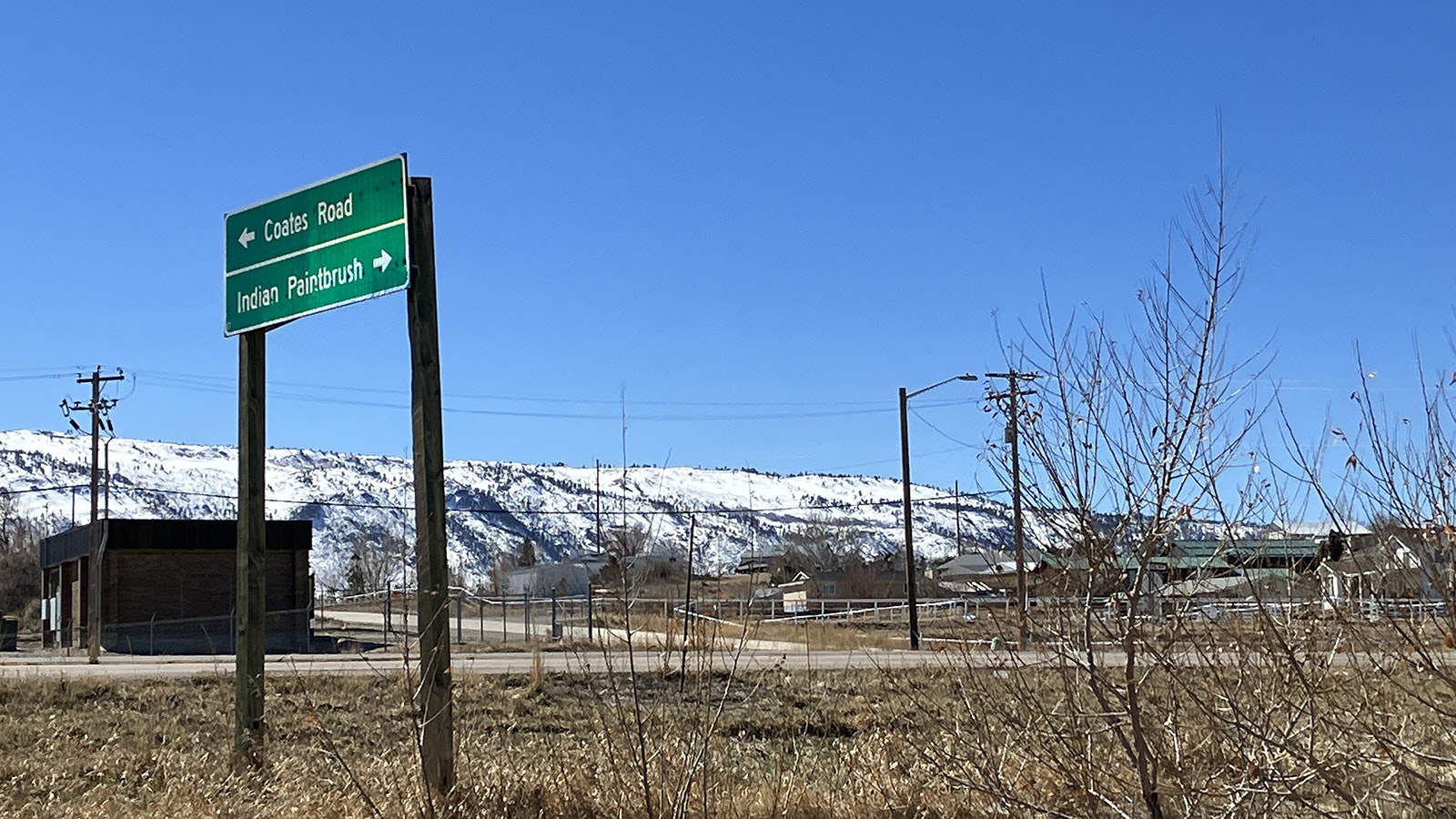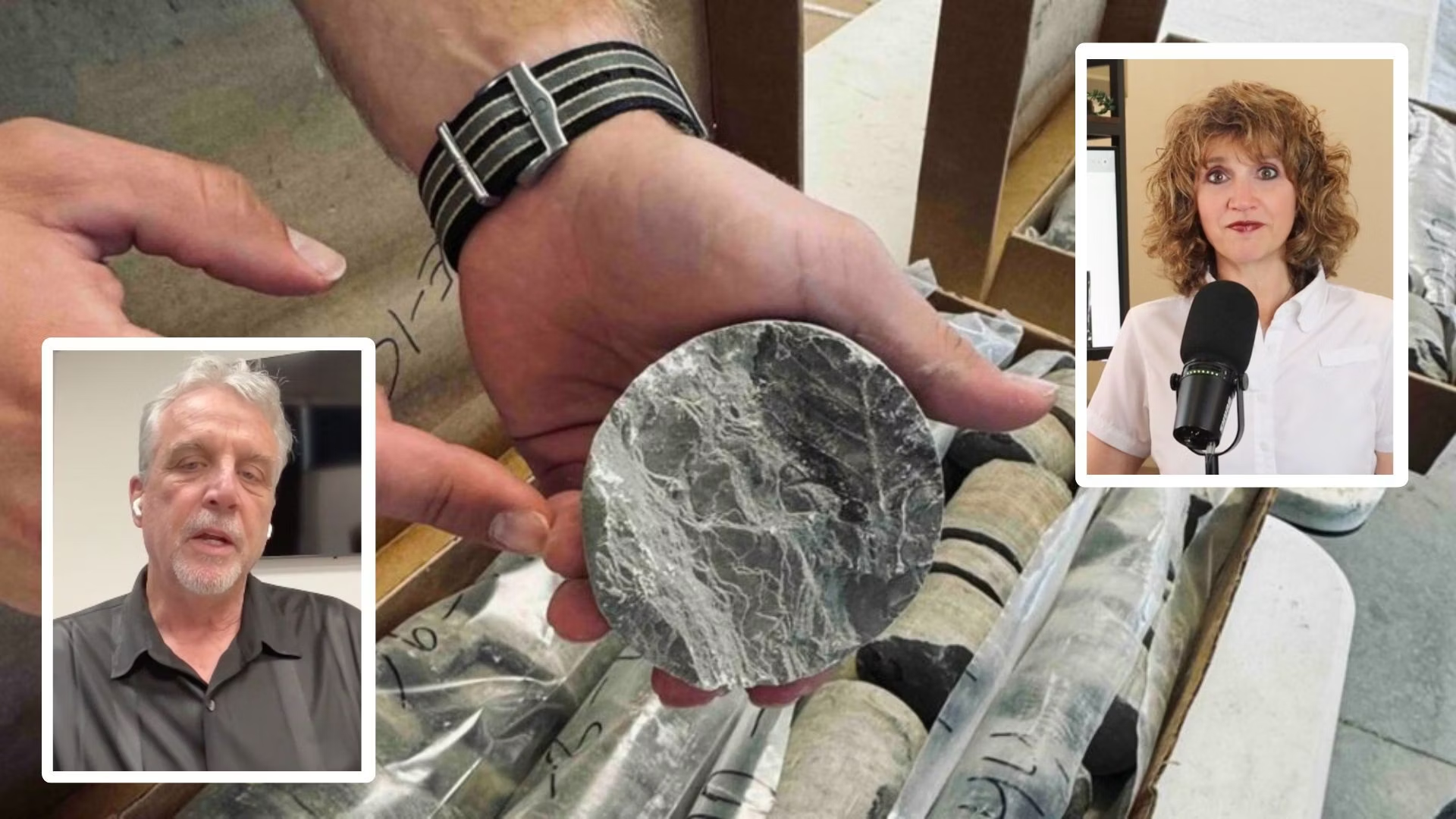CASPER — The uproar over a proposed gravel mine on state-owned land at the base of Casper Mountain continues to resonate through the Oil City region, and grew even more pronounced Tuesday as word spread about the company filing for the opportunity to begin limited mining operations.
Locals filled the Natrona County Commission meeting chambers Tuesday asking commissioners to reject the gravel operation and protect what they see as a prized and vulnerable section of public land. They want to keep it a favorite place to live, ranch and recreate, and keep it pristine for area tourism.
Prism Logistics Manager Kyle True, whose company has obtained leases for several sections of state-owned land at the base of the mountain, told Cowboy State Daily on Wednesday he filed for limited mining operations (LMO) on a portion of the area known as Section 2 last week.
He also said his company has heard the backlash to its plans to mine gravel and wants to minimize its impact.
“We have initiated that process with the state for an LMO,” he said. “We want to start in an area that would minimize any impacts on water, we want to minimize any impacts on downwind structures or people, and we want to keep it close to the road so it will also have minimal impact.”
True said the company has chosen the north half of the northeast of Section 2, “mostly in lot two and some in lot one” as its initial intent for mining. He said the company plans to go public with plans and try to educate the community and calm fears about the company’s intent in coming days.
Not Convinced
Meanwhile, members of the Casper Mountain Preservation Alliance and others packed the commission’s meeting room for the third time in a row.
From their perspective, the most minimal impact is to not mine gravel there at all.
They asked commissioners to do what they can to ensure gravel dust does not start flying across sections of state land and choke out the neighbors surrounding that land at the base of Casper Mountain.
Casper Mountain area resident Tim Pearse said he and his wife bought their “dream property” at the base of the mountain and now may be faced with potential mining operations just beyond their property line.
“If the leases are to be believed, this mining operation can extend to within 300 feet of the backyard where my 8-year-old son and 6-year-old daughter play,” he said. “That’s not something that I would expect to see in a residential neighborhood.
“I don’t want my kids to be playing where they can breathe in that dust. I don’t want to have my family barbecues where I can hear rocks being crushed.”
He asked the commissioners to act to protect not only the Casper Mountain neighborhood, but the city from the effects and impacts a gravel mine would have in that area of the county.
Casper Mountain Preservation Alliance Chairperson Carolyn Griffith said that with the LMO application, commissioners “now have skin in the game, and I am sure you are feeling that to some degree.”
“You may be aware there was a case heard before a judge up in Teton County on Thursday that was a similar type of situation,” she said. “I don’t know why the State Land Investment Board would put the onus back on you to control lands that they allowed a lease on, maybe unvetted. I think you are in an unfortunate spot in that regard, and I think that needs to be researched further.”
Griffith referred to the fact that the state land board unanimously last year approved Prism Logistics applications to lease state sections of land at the base of Casper Mountain through consent agenda votes.
However, at the conclusion of a meeting in Casper on April 4 after hearing testimony from area residents and touring the area, the State Board of Land Commissioners agreed to investigate ways to see if Prism Logistics would agree to “relinquish” its leases.
True said Wednesday that he has not been contacted by anyone from the state regarding his leases.

Gravel Pit Neighbor
Maria Katherman told the board she lived in Casper for 35 years before moving to Converse County and helped write the “Casper Mountain Field Guide.” She also now lives by a gravel pit and said the trucks are what “people fear.”
“I have lived next to a gravel pit on our place, and it is about 300 feet from our fence line,” she said. “And so the noise and the dust is real and it goes on right at dawn, and in the summertime that is 5:30 in the morning.
“Just as there are few regulations around this limited mine operation, there are also very little regulations about the reclamation. And so, whatever the miners may say, what you really end up with is a gravel parking lot.”
Katherman encouraged the commission to consider the state land at the base of the mountain as an “asset” that could bring more recreational and outdoor use and be a “real jewel for this town and this county.”
Toby Westbrook told commissioners he’s an environmental engineer who is planning to move to Casper from Gillette. He’s visited the areas being considered for gravel mining operations at the base of Casper Mountain along Coates Road and Squaw Creek.
“What people I don’t think here are going to realize is how much this will really affect the entire town of Casper,” he said. “The fine dust particles … will get into your lungs. It is a huge environmental risk. I’m a fly fisherman and it’s going to affect your rivers, it’s going to affect your streams.”
He said the turbidity in wells in the region is “going to go through the roof. You are not going to be get a heavy duty enough filtration system to keep your water clean and that’s just the tip of the iceberg.”
Company’s Plans
True said his company plans to go public soon with its intentions and thoughts regarding limited mining operations and emphasized that “all these things are pending DEQ approval.”
“We think all the concerns that have been raised — water quality and volume, air quality, road disturbance, property values — will not materialize in a negative way,” he said. “We are encouraged to find that water wells can be drilled in this area successfully and if we were to have any negative impacts on water supplies, we would consider drilling a well and donating it to a homeowner’s association or some such.”
True said any future operations on Coates Road would involve trucks traveling at not more than 20 mph, only during daylight, and without the use of Jake brakes.
Prism Logistics plans would be to separate rock from the soil and remove it at the mountain location, True said. He said crushing, stacking and sales operations would be done at another location.
“So, we are looking forward to letting people know there are ways we can work together and harvest what is good while protecting the local culture and environment,” he said. “We will be having some public forums and writing some press releases, so that should be coming soon.”
True said he has no concrete timeline for the project.
“Working with the state’s land office taking longer than we are accustomed to,” he said. “Usually it would take 60 days, but this is taking longer.”
DEQ Rules
Information supplied by the DEQ states an LMO applicant must file for a permit from the Water Quality Division to get a mineral mining stormwater general permit that would involve a stormwater pollution prevention plan to “ensure that sediment and other pollutants in stormwater runoff from the facility do not negatively impact surface water quality.”
Prism Logistics would also be required to obtain a permit from the DEQ Air Quality Division that in addition to other requirements would involve “controlling fugitive dust emissions.” Those emissions are defined as “particulate emissions” that are not passing through a “stack, chimney, vent, or other functionally equivalent opening.”
Under an LMO, state regulations require the operator to:
- Limit operations to 15 acres, which excludes access roads. It has to have written permission from the landowner or lessee for the mining operation.
- Give notice to the DEQ and state mine inspector 30 days before mining.
- Provide all surface landowners within one mile of the proposed LMO boundary a notice of mining operations 30 days before starting operations.
- Notify the DEQ within 30 days of beginning operations of the date actual mining commenced.
- Stay 300 feet away from any existing dwelling, home, public building, school, etc., unless landowner’s consent has been obtained.
- File a bond with the DEQ for the 15 acres and access roads reclamation.
- Submit an annual report to the DEQ.
6,000 Signatures
County Commission Chairman Peter Nicolaysen told the crowd Tuesday that the county’s position remains that Prism Logistics will be required to apply for a conditional use permit from the county. He said the county will provide adequate notice to all residents and allow adequate testimony regarding the issue.
“Don’t even give one second’s thought to us running this thing through. We’ve got 6,000 signatures telling us not to just run this thing through,” he said. “You folks are committed, you are here. We are committed to doing our jobs the best that we can and that will require us to go slow and methodical through this process.”
County Commissioner Dallas Laird, an attorney, told those gathered that he has researched state statutes related to the State Office of Lands and Investments and the State Board of Land Commissioners and plans to act accordingly to protect the land and people he represents at the appropriate time.
“There is a rule that they have to pay attention to zoning, and they have to make arrangements for it,” he said. “And I think the state has missed a few things. But I am going to tell you one thing, I am not going to miss it when it comes to us.”
Editor's note: This story has been corrected to reflect Prism Logistics' filing of its intent to have limited mining operations on the land was not a filing for a permit.
Dale Killingbeck can be reached at dale@cowboystatedaily.com.





